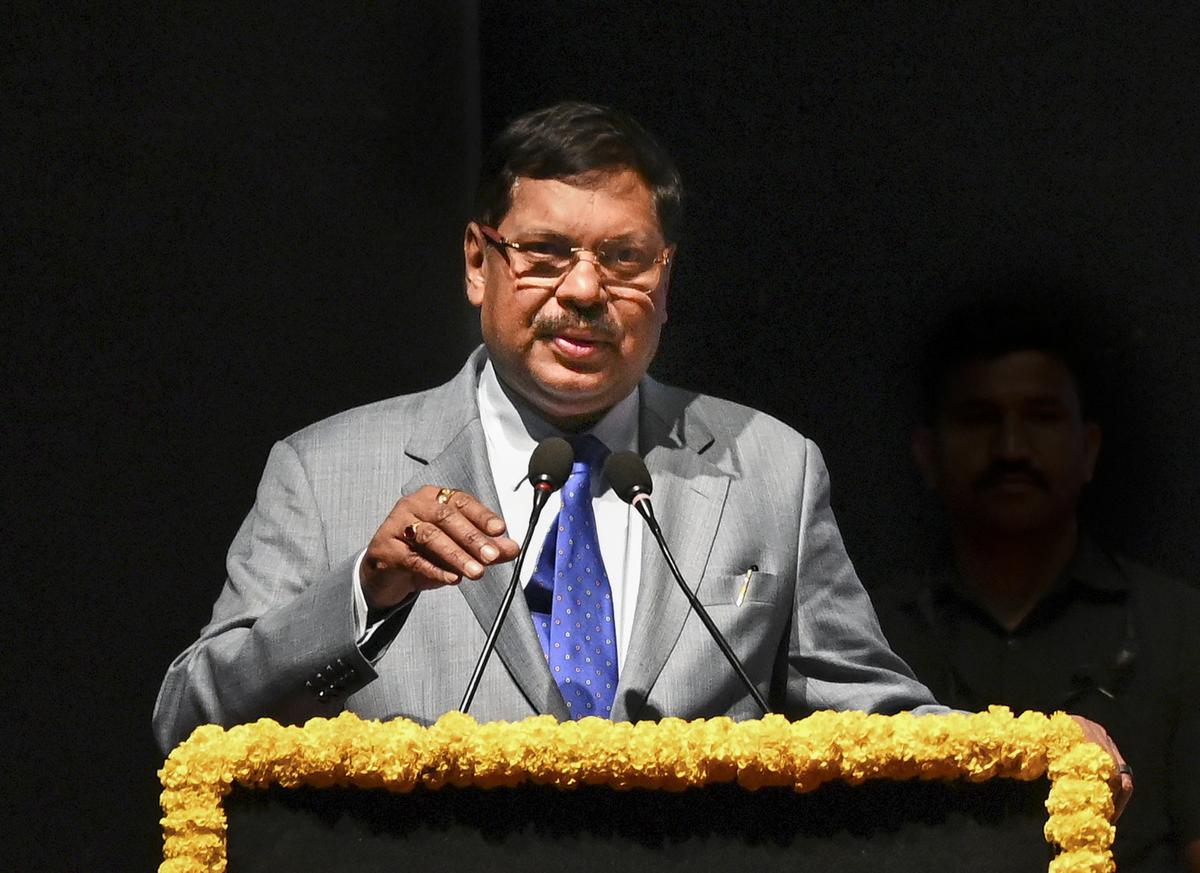Context:
Chief Justice of India (CJI) B.R. Gavai, who recently assumed office as the 52nd CJI, has publicly committed to infusing “complete transparency” into the Collegium system for judicial appointments. Speaking at an event organized by the Bombay Bar Association, CJI Gavai emphasized that merit would never be compromised and assured representation from all sections of society in the judiciary.
Assurances on Transparency and Merit:
- CJI B.R. Gavai unequivocally assured “complete transparency” in the Collegium system for the appointment of judges.
- He pledged that merit would never be compromised in the selection process.
- An important goal is to ensure representation from all sections of society within the judiciary.
- He also stated that the names of all recommended candidates would be diligently followed up.
Context of CJI Gavai’s Tenure:
- CJI Gavai was sworn in as the 52nd Chief Justice of India last month.
- He explicitly stated his intention not to give interviews or speak about any “roadmap” immediately upon taking office, preferring his “work speak for me six months later when I retire.”This reflects a commitment to action over rhetoric.
About Collegium System:
- The Collegium System refers to the system where appointments and transfers of judges in the Supreme Court and High Courts are decided by a body of senior judges, not by the executive or legislative branches.
- It originated from a series of Supreme Court judgments,
Collectively known as the “Judges Cases”:
- First Judges Case (1981): Ruled that the word “consultation” in the Constitution (Articles 124 and 217) did not mean concurrence and that the President could disregard the CJI’s advice under certain circumstances.
- Second Judges Case (1993): Overruled the 1981 judgment, establishing the “Supremacy of the CJI” in judicial appointments and transfers, stating that the CJI’s recommendation was binding. It introduced the Collegium, stating the CJI must consult with two senior-most judges.
- Third Judges Case (1998): Clarified that the CJI’s sole opinion does not constitute “consultation.” It expanded the Supreme Court Collegium to include the CJI and the four senior-most judges of the Supreme Court.
Composition:
- Supreme Court Collegium: Includes the Chief Justice of India (CJI) and the four senior-most Supreme Court judges.
- High Court Collegium: Led by the Chief Justice of the High Court and its two senior-most judges.
- Constitutional Provisions for Judicial Appointments
- Article 124: Supreme Court judges are appointed by the President, in consultation with the CJI and other judges as necessary.
- Article 217: High Court judges are appointed by the President, in consultation with the CJI, the Governor of the state, and the Chief Justice of the High Court.
- Government’s Role: The government can raise objections or seek clarifications.
- However, if the Collegium reiterates its recommendations, the government is bound to comply.
Functions and Process of Appointment/Transfer:
• Appointments (High Court): The High Court Collegium proposes names to the Supreme Court Collegium. The SC Collegium evaluates these names, and if approved, forwards them to the Union Law Ministry, which then advises the President for formal appointment.
• Appointments (Supreme Court): The Supreme Court Collegium directly recommends names for appointment to the Supreme Court to the Union Law Ministry.
• Transfers: The Supreme Court Collegium also decides on the transfer of High Court judges and Chief Justices.
Arguments in Favour of the Collegium System:
- Judicial Independence: Proponents argue that the Collegium is crucial for safeguarding the independence of the judiciary from executive or political interference, ensuring that appointments are based on merit and not political patronage.
- Judicial Expertise: Judges are best suited to assess the suitability, legal acumen, and temperament of prospective judges.
- Checks on Executive Power: It acts as a check on potential executive overreach in judicial matters.

